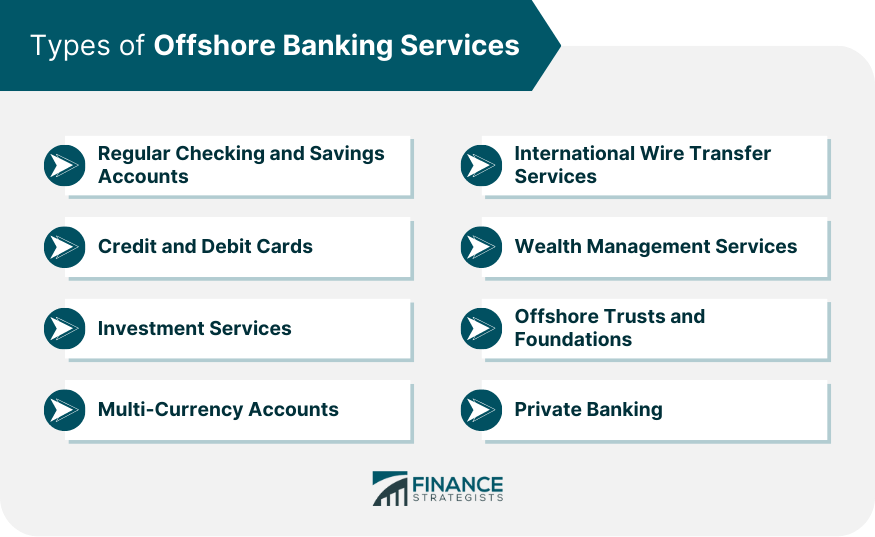Debunking Offshore Company Formations: Just How They Operate and What to Anticipate
Offshore company formations can seem facility and enigmatic. Offshore Company Formations. These entities, usually developed for tax benefits and personal privacy, operate under special legal structures. Business owners may locate themselves maneuvering with a maze of regulations and conformity needs. Comprehending the intricacies is necessary for success. What are the real benefits? What are the possible pitfalls? A closer assessment exposes the nuances that can influence decision-making considerably
Comprehending Offshore Companies: Definitions and Kinds
Offshore companies are entities developed in a jurisdiction outside of an individual's or organization's key nation of home, usually for objectives connected to tax optimization, property defense, or governing benefits. These companies can take numerous types, including minimal responsibility firms (LLCs), worldwide business firms (IBCs), and offshore depends on. Each type serves particular features and interest various demands.
Minimal liability business provide proprietors with protection from individual liability, while international business firms are popular for their flexibility and very little coverage demands. Offshore trust funds, on the other hand, are made use of mainly for estate planning and asset protection.
The selection of jurisdiction considerably influences the firm's procedures, as some locations use more beneficial lawful structures and privacy protections. Offshore Company Formations. Recognizing the distinctions in between these kinds is vital for companies and people considering offshore frameworks, as each option carries various implications for governance and compliance
The Benefits of Establishing an Offshore Business
Developing an overseas company can supply various benefits, especially for those looking for to improve their financial methods and secure their possessions. One substantial advantage is tax obligation optimization; numerous jurisdictions offer beneficial tax obligation prices or exceptions, permitting organizations to keep more revenues. In addition, overseas firms can give a layer of personal privacy, protecting the identifications of owners and shareholders from public scrutiny.
Another advantage is asset protection. By placing assets in an overseas entity, people can safeguard their riches from prospective legal cases or political instability in their home countries. This framework additionally helps with global business procedures, allowing less complicated access to varied clientele and international markets.
In addition, the facility of an overseas company can boost trustworthiness and eminence, appealing to customers who value worldwide company practices. On the whole, these advantages make offshore business formations an attractive option for businesses and people intending for financial growth and protection.
Trick Factors To Consider Prior To Creating an Offshore Entity
Before developing an offshore entity, numerous crucial factors have to be examined. Legal conformity requirements, tax obligation effects and advantages, along with jurisdiction option, play a substantial role in the decision-making procedure. Understanding these factors to consider can aid people and companies browse the intricacies of offshore business formations properly.

Legal Compliance Needs
When considering the formation of an overseas entity, recognizing lawful compliance requirements is essential to assure adherence to both local and worldwide laws. Prospective local business owner must acquaint themselves with policies controling firm registration, reporting responsibilities, and functional requirements in the picked territory. This consists of validating the lawful requirements for directors and investors, as well as making certain compliance with anti-money laundering (AML) and know-your-customer (KYC) guidelines. Additionally, organizations should stay familiar with any licensing requirements certain to their sector. Engaging local lawful and economists can offer beneficial insights, making sure that all required paperwork is prepared and submitted appropriately. Inevitably, complete understanding of legal conformity assists alleviate threats and cultivates a lasting overseas operation.
Tax Implications and Benefits
Countless local business owner think about the tax obligation effects and advantages of developing an overseas entity as an important consider their decision-making procedure. Offshore firms can offer significant tax obligation benefits, such as reduced corporate tax rates, exemption from particular neighborhood taxes, and the capacity to postpone taxes on foreign income. These advantages can lead to boosted success and capital, making offshore frameworks appealing for global organization procedures. In addition, the possibility for tax obligation treaties may even more lessen tax obligation responsibilities. It is vital for service proprietors to comprehend the complexities entailed, including compliance with both worldwide and local tax obligation guidelines. Engaging with tax specialists is a good idea to navigate these complexities effectively and assure suitable tax preparation approaches.
Jurisdiction Option Aspects
What factors should one take into consideration when choosing a jurisdiction for overseas firm formation? Trick considerations consist of tax effectiveness, regulatory environment, and political stability. Territories with beneficial tax obligation programs can substantially affect profitability. The regulative landscape must provide flexibility and simplicity of compliance, permitting reliable company procedures. Political stability is crucial, as it guarantees the security of properties and continuity of operations. Additionally, the online reputation of the jurisdiction can impact customer trust and service relationships. Availability to financial services and the accessibility of professional support solutions are additionally vital. Recognizing neighborhood regulations concerning personal privacy, possession, and reporting demands is vital to identify that the overseas entity straightens with the organization proprietor's goals and legal obligations.
Possession The Process of Establishing Up an Offshore Company
Setting up an overseas firm entails a collection of tactical steps that call for careful preparation and conformity with worldwide policies. Initially, a private need to choose a suitable territory that lines up with their business goals and uses desirable tax advantages. Complying with jurisdiction choice, the next action is to choose a special Go Here business name and prepare the essential paperwork, consisting of short articles of incorporation and shareholder arrangements.
When the documentation prepares, it must be sent to the relevant authorities together with the called for charges. After authorization, the company will receive a certification of unification, formally developing its legal existence. The individual have to then open a business bank account to help with economic transactions.
Keeping an offshore company includes adhering to ongoing compliance requirements, such as yearly coverage and tax responsibilities, which differ by territory. Understanding each step is necessary for an effective offshore company formation.

Regulatory and legal Framework for Offshore Firms
While developing an overseas business can offer considerable benefits, it is vital to navigate with the complicated legal and governing structure that regulates such entities. Each jurisdiction has its own collection of regulations that dictate everything from firm formation to taxes and conformity needs. These laws are made to prevent illegal tasks, such as money laundering and tax evasion, and often call for thorough documents and openness.
Crucial element of this framework consist of the necessity of appointing neighborhood supervisors, preserving a registered office, and sticking to annual reporting commitments. In addition, numerous territories impose specific licensing needs for sure service tasks. Understanding these legal specifications is important for making certain compliance and mitigating dangers connected with charges or legal conflicts. Consequently, involving with legal experts that specialize in offshore companies can assist in maneuvering via this detailed landscape, ultimately promoting a certified and successful offshore business operation.
Usual Misconceptions Concerning Offshore Business
Many individuals hold misconceptions regarding overseas firms, often corresponding them with tax obligation evasion and prohibited tasks. However, it is very important to acknowledge that these entities can run legitimately within a structure developed for legitimate business techniques. Making clear the legal condition of offshore business can aid dispel these misconceptions and promote a more exact understanding of their function.
Tax Evasion Misconceptions
Despite the growing appeal of overseas business, misconceptions concerning their usage for tax obligation evasion continue. Numerous people mistakenly believe that developing an overseas entity is exclusively a way to prevent taxes. Overseas firms are typically used for genuine objectives, such as asset defense, global company growth, and investment diversity. The understanding that all overseas tasks correspond to illicit tax evasion ignores the complexities of international tax obligation laws and compliance requirements. Additionally, the huge majority of overseas go to this website territories have actually executed actions to fight tax obligation evasion, promoting openness and information exchange. This mischaracterization can deter legit businesses and investors from exploring the possible advantages of offshore business formations while continuing an adverse preconception surrounding these entities.
Lawful Condition Clarified
The legal standing of offshore business is frequently misconstrued, resulting in a selection of mistaken beliefs. Numerous think these entities operate in a legal gray area, presuming they are inherently unlawful or underhanded. In truth, offshore companies are genuine services developed under the regulations of specific territories, made for different reasons, consisting of property defense and market expansion. Another common false impression is that offshore business escape tax obligations completely; nonetheless, they undergo the regulations and tax responsibilities of their home countries. In addition, some individuals assume that overseas business can be easily exploited for money laundering or unlawful tasks. While abuse can take place, the majority of territories implement rigorous conformity and transparency legislations to mitigate such risks, ensuring that overseas companies operate within legal structures.

Managing and Running Your Offshore Business Effectively
Successfully managing and running an overseas company needs a critical approach that balances compliance with regional regulations and the pursuit of service objectives. Successful offshore management involves recognizing the territory's tax obligation laws, reporting demands, and functional regulations. Utilizing neighborhood specialists, such as accounting professionals and lawful experts, can give indispensable understandings right into going across these complexities.
Additionally, establishing clear interaction networks and functional procedures is essential for preserving performance. Using innovation for job administration and partnership can enhance productivity, while normal performance evaluates assurance positioning with critical purposes.
Maintaining robust monetary documents is essential, as transparency promotes depend on with stakeholders and complies with international criteria. Ultimately, being adaptable to changes in regulation or market problems allows overseas firms to pivot effectively, ensuring lasting sustainability and development. By sticking to these principles, local business owner can maximize the benefits of their overseas endeavors while mitigating dangers.
Often Asked Questions
Just how much Does It Expense to Keep an Offshore Firm Annually?
The cost to preserve an offshore business yearly differs considerably, generally varying from $1,000 to $5,000, relying on jurisdiction, solutions needed, and conformity commitments. It is essential to consider added charges for specific requirements.
Can I Open Up a Bank Account for My Offshore Company Remotely?
Opening a bank account for an offshore business remotely is normally feasible. However, demands might differ by territory, frequently demanding documentation and verification processes, which their explanation can make complex the remote application experience for people.
Exist Specific Nations Known for Easier Offshore Company Formations?
Specific nations, such as Belize, Seychelles, and the British Virgin Islands, are renowned for their desirable regulations and streamlined procedures pertaining to overseas business formations, bring in entrepreneurs seeking effectiveness and privacy in business procedures.
What Sorts of Businesses Are Best Matched for Offshore Companies?
Certain organizations, such as shopping, investment, and consultancy companies, usually take advantage of offshore companies as a result of tax benefits, privacy, and governing versatility - Offshore Company Formations. These entities typically grow in jurisdictions that advertise positive business settings
Exactly How Can I Ensure Conformity With Local Legislations When Operating Offshore?
To ensure conformity with regional laws when running offshore, it is important to involve lawful specialists, carry out comprehensive research study on territory regulations, and maintain clear economic documents, therefore minimizing threats connected with non-compliance.
